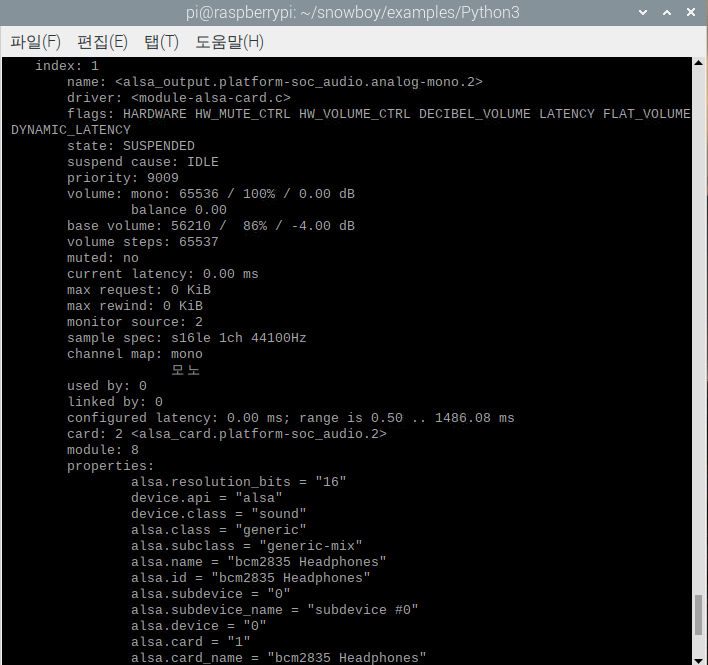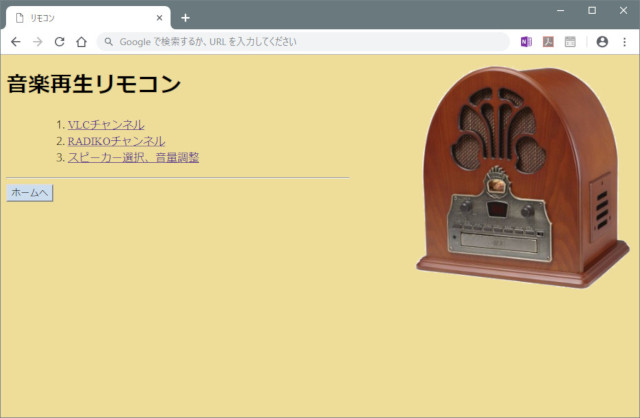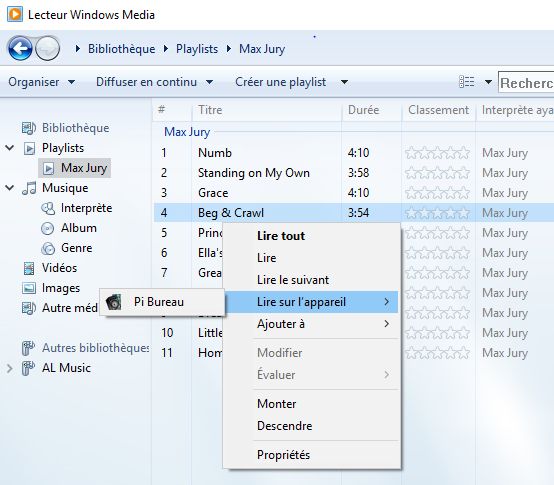

- #Gmediarender audiosink audiodevice how to
- #Gmediarender audiosink audiodevice install
- #Gmediarender audiosink audiodevice android
bubbleupnp on multiple Android phones to control the music choice.gmedia-resurrected running on the Raspberry Pi to play the music through the mini Hi-Fi.minidlna running on the media server (a nettop linux box behind the sofa).Interestingly, I tried it without the “-c pi:audio” so that the daemon ran as root and the sound quality went bad again. You can then do “sudo service gmediarenderer start” to run gmediarenderer as a daemon there and then or reboot and it will start automatically. To make the script executable and add in all the symbolic links from the /etc/rc.x directories. $ sudo update-rc.d gmediarenderer defaults $ sudo chmod 755 /etc/init.d/gmediarenderer Start-stop-daemon -x /usr/local/bin/gmediarender -KĮcho "Usage: /etc/init.d/gmediarender " Start-stop-daemon -x /usr/local/bin/gmediarender -c pi:audio -S -f 'Raspberry' -d # Description: Start GMediaRender at boot time. # Short-Description: Start GMediaRender at boot time Create a file /etc/init.d/gmediarenderer with the following contents: Now gmediarender is compiled and gstreamer works on the Raspberry Pi we need to get it all to start on boot.įairly standard stuff here (copied from Malte’s post in Chris’ blog). Next task is to get the gmediarender process to start on boot.

One problem I’ve just noticed is that when you skip forwards a track in an album for instance then there are a few pops and clicks. I later realised that I probably didn’t actually have PulseAudio running and would need to start it with the command “pulseaudio –start” but next time I turned the Pi on to try it, PulseAudio was running and the sound from gmedia-resurrected, via gstreamer, to PulseAudio, ALSA and finally to the hardware sounded just great! How strange that adding another layer to the sound stack makes it better, not worse… # Then I realise I don't have pulseaudio itself installed.Īfter doing all of that the sound was just the same.

$ gconftool-2 -a /system/gstreamer/0.10/default $ gconftool-2 -t string -set /system/gstreamer/0.10/default/musicaudiosink pulsesink $ gconftool-2 -t string -set /system/gstreamer/0.10/default/audiosrc pulsesrc $ gconftool-2 -t string -set /system/gstreamer/0.10/default/audiosink pulsesink # Need to configure gstreamer to use pulseaudio
#Gmediarender audiosink audiodevice install
$ sudo apt-get install gstreamer0.10-pulseaudio
#Gmediarender audiosink audiodevice how to
I may post have now posted a complete cleaned up installation guide later but personally I find seeing how other people have made mistakes and worked out how to do things instructive as well.

The following annotated shell transcript shows how I installed PulseAudio and configured gstreamer to use it. There’s a great article on how linux audio works which helps explain things a lot. It’s been a long time since I got into the detail of linux audio systems and it all seems to have changed. One of Chris Baume’s commenters also had problems with the audio qut.ality and suggested that directing the audio via PulseAudio fixed it. A bit more googling revealed a post from someone doing much the same as me. 备注:更新:gmediarender添加/etc/config/gmediarender和/etc/hotplug.d/usb/gmediarender文件,以及修改了/etc/init.d/gmediarender。目的是让gmediarender能像mjpg-streamer一样,在插入usb声卡后能让gmediarender服务自动运行,在移除usb声卡后自动的停止gmediarender服务。详情可以参看上面提供的gmrender.Having now got gmrender to compile and run on the Raspberry Pi and use gstreamer as a backend I need to fix the audio quality issues. ++ CFLAGS+=" -Wall -Wpointer-arith -Wmissing-prototypes -Wmissing-declarations -Wwrite-strings -std=c99" +- CFLAGS+=" -Wall -Wpointer-arith -Wmissing-prototypes -Wmissing-declarations -Wwrite-strings" + controllers a means to render media content (audio, video and images) + gmediarender implements the server component that provides UPnP Kernel modules->USB Support->kmod-usb-storage-extras Kernel modules->USB Support->kmod-usb-storage Kernel modules->USB Support->kmod-usb-hid Kernel modules->Sound Support->kmod-usb-audio Kernel modules->Sound Support->kmod-sound-core Kernel modules->Native Language Support->kmod-nls-cp437 Kernel modules->Native Language Support->kmod-nls-utf8 Kernel modules->Filesystems->kmod-fs-vfat Kernel modules->Filesystems->kmod-fs-ntfs Kernel modules->Filesystems->kmod-fs-msdos Kernel modules->Filesystems->kmod-fs-ext4


 0 kommentar(er)
0 kommentar(er)
